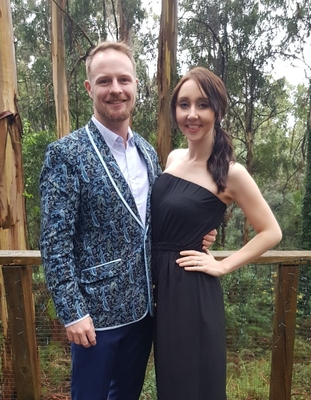
By Derek Schlennstedt
Olinda resident Bree Faulkner’s fears about passing her illness onto her children disappeared after she took part in a DNA sequencing program.
Victorians suffering from rare or undiagnosed illnesses are being given the chance to find out more about their diseases, thanks to State Government funding for the world-leading program.
Ms Faulkner was among 2000 Victorians with a rare or undiagnosed illness to access it.
She was diagnosed at 11 months of age with polycystic kidney disease – a genetic disorder that involves the growth of numerous cysts in both kidneys.
This slowly leads to kidney failure.
Before genetic testing, her condition was presumed to be autosomal dominant polycystic kidney disease (ADPKD), which has a 50 per cent chance of being passed onto the next generation.
Under the impression that if she had kids they would inherit the condition, Ms Faulkner said she was hesitant to have children or even plan for the future.
“I was always told that if I had children they would have this disease,” she said.
“I had been under the assumption that it’s a passed-on disease and I knew that I got it from my parents, and I knew that I could pass it onto my kids if I had any.
“I’ve lived my life with the fear that if I have children they’ll live a life that I have.”
Now aged 30 and following a referral for DNA sequencing, Ms Faulkner’s diagnosis changed to autosomal recessive polycystic kidney disease (ARPKD).
That result means her genetic disorder is recessive and not dominant, so her children will carry the gene but not have the disease.
“It is wonderful news to know that I and my husband can go ahead and plan a family without having that worry,“ she said.
“I feel like once I have my kidney transplant and look at having kids I can go into that knowing probably even more than a mother with no issues would know.”






